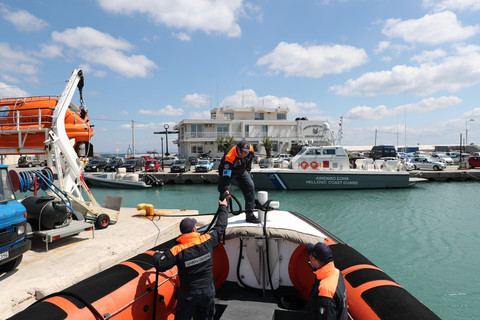Earlier this year, the EU law-enforcement agency Frontex pulled out of Hungary, over violations committed against asylum seekers.
Frontex had, however, sat on the issue for five years, despite the evidence.
The Warsaw-based agency finally left after EU judges in December told Hungary to stop pushing asylum seekers back into Serbia.
Budapest ignored the ruling – and still does – triggering Frontex to withdraw, at the risk of otherwise being complicit to a crime.
Now calls are being made for Frontex to do the same in Greece, amid credible accusations of illegal pushbacks since March last year.
But the prospect of Frontex leaving Greece anytime soon appears unlikely – as that would mean acknowledging such illegal pushbacks are taking place.
This is something Frontex has so far refused to do, despite evidence produced by the media, NGOs, and international organisations.
A mixture of politics, legal questions, a lack of accountability, an EU migrant return deal, plus maritime disputes with Turkey, further complicate the picture.
Article 46 of the Frontex regulation says the agency can stop any operation where rights violations “are a serious nature or are likely to persist.”
It is a decision made by Frontex’s executive director, Fabrice Leggeri, who has up to 800 officers deployed in Greece at any one time.
But what constitutes a “serious nature” is not defined in the regulation, leaving it open to lawyers and politics.
If it took a European Court of Justice judgement for Leggeri to pull out of Hungary, then the bar is already too high for Greece.
Accountability paradox
New Frontex fundamental rights safeguards were issued at the end of 2019. But key safeguards, such as hiring 40 new fundamental rights monitors, have been hit by long delays.
And pre-existing serious incident reports, filed by Frontex guards to draw attention to violations, do not appear to be acted on.
It is worth recalling that Leggeri knew about the Hungarian violations since 2016, when it had started to push people back into Serbia from within an 8km border zone.
In October 2016, he was told of almost 11,000 cases where migrants were prevented by the Hungarian police from accessing the asylum system. Of those, some 4,500 were pushbacks.
A Frontex fundamental rights officer then carried out an investigation in Hungary. She too documented rights violations, concluding at the end of 2016 that the “agency may wish to revise its support (to Hungary).”
But Leggeri dismissed the advice, and in February 2017 announced Frontex’s decision to remain in Hungary.
A month later, Budapest extended its 8km push back zone to the entire country. A few months later, the European Commission decided to take Hungary to court.
Andras Lederer, a senior advocacy officer at the Budapest-based Hungarian Helsinki Committee, said Frontex still refused to leave.
“The fact that the commission assessed the situation to be in breach of EU law did not change anything about the agency’s operation in Hungary,” he said.
Frontex, instead, continued to provide assistance to the Hungarian authorities – who proceeded to carry out more than 71,000 pushbacks, according to the Hungarian Helsinki Committee.
EU politics
Unlike Hungary, Greece also has the political support of the European Commission.
The entire EU leadership last year declared Greece “a shield”, after Turkey sent thousands of people to its shared border near Evros in March.
Greece then sealed its border and temporarily halted all asylum applications.
NGOs like Human Rights Watch said Greece was violating international and EU laws. Others demanded the commission take action against push backs, which are illegal under article 18 of the EU Charter for the Protection of Fundamental Rights, as well as article 78 in the Treaty of the Functioning of the European Union.
Article 4 of the EU regulation governing border surveillance-operations also opposes pushbacks.
And the Asylum Procedures Directive clearly states that an asylum request can be launched at the border of the European Union.
But EU commission vice-president Margaritis Schinas, a Greek national, had a different take.
He described the Greek closures in March 2020 as a new model for migration management.
“As we proved in Evros at the beginning of March, Europe can now effectively ensure border management,” he had said last September.
It means Frontex is not going anywhere.
By NIKOLAJ NIELSEN
Source: EU Observer



